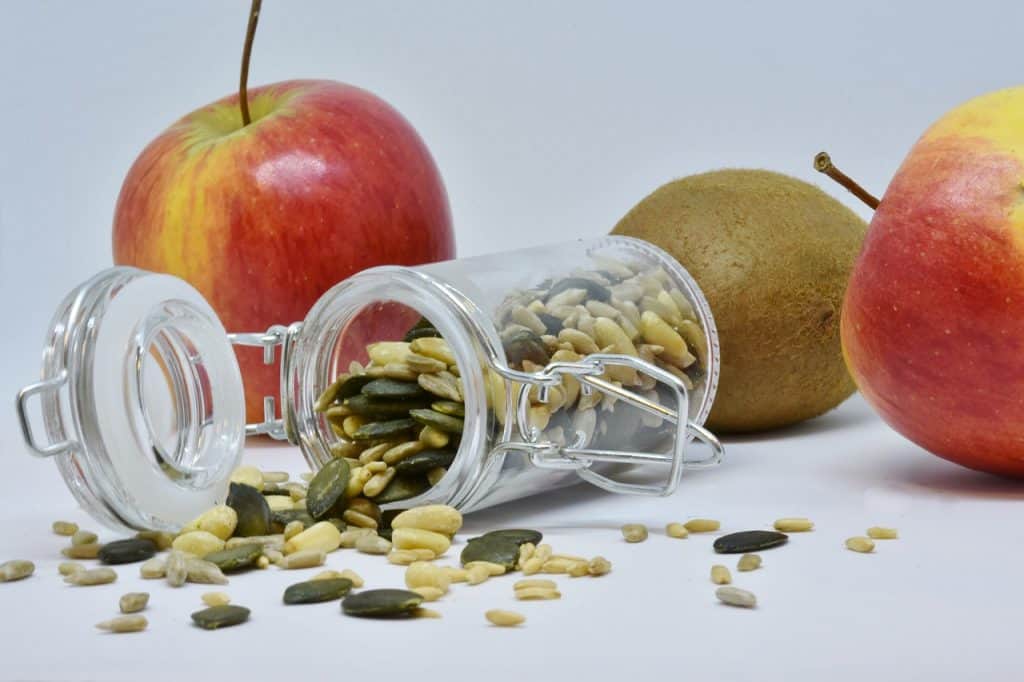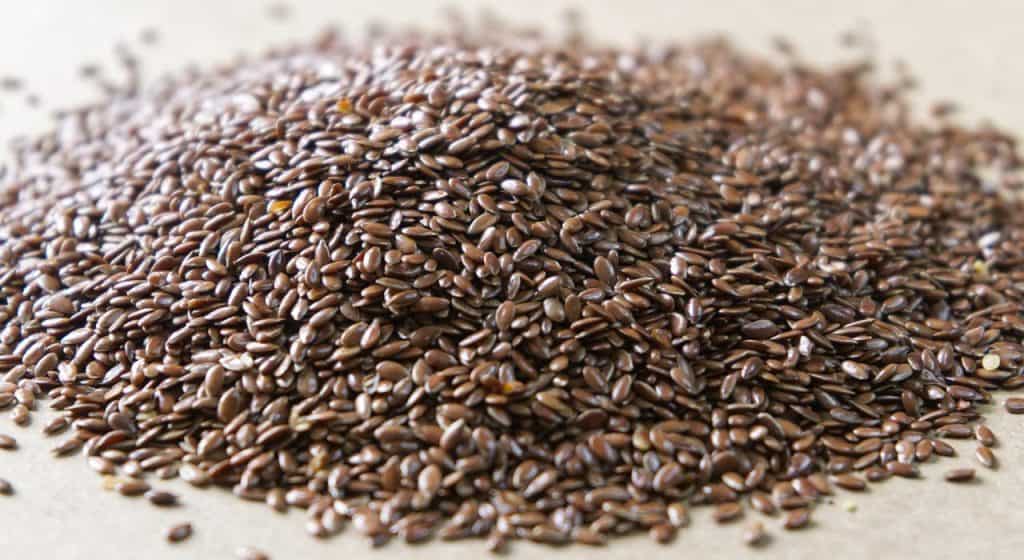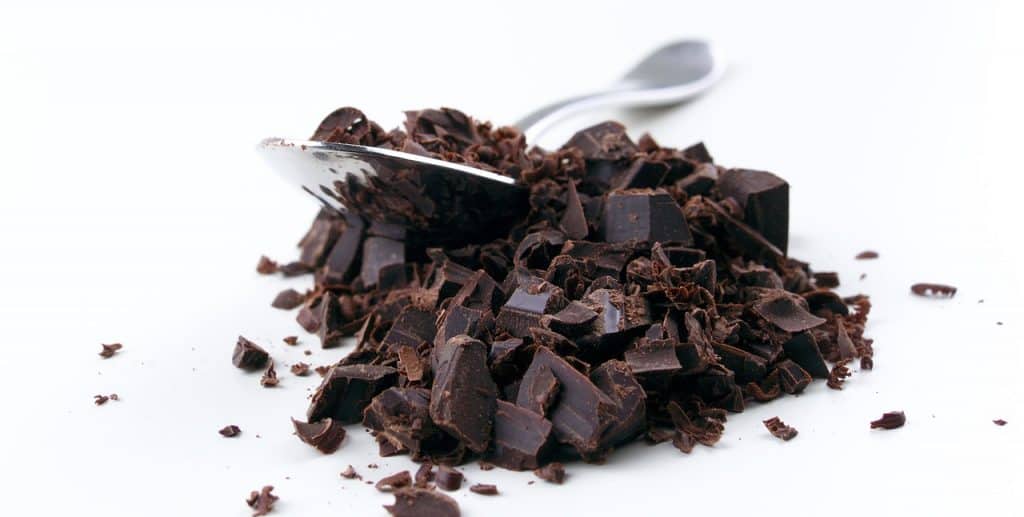What Are Polyphenol ?

What Are Polyphenols? Types, Health Benefits, and Food Sources
What are polyphenols? They are a type of phytonutrient that is found in plant foods. Phytonutrients are plant compounds that provide health benefits.
Polyphenols have been shown to offer numerous health benefits, including reducing the risk of chronic diseases such as cancer and heart disease. They are also known for their anti-inflammatory and antioxidant properties. There are many different types of polyphenols, and they can be found in a variety of plant foods. Here is a look at some common polyphenols, their benefits, and their food sources.
Types of polyphenol

Polyphenols are a large and diverse group of chemical compounds found in plant-based foods. Many polyphenols have strong antioxidant properties, which means they get rid of harmful toxins and byproducts that can hurt cells and cause them to age faster or get sick.
Polyphenols may also prevent or lower the risk of several long-term diseases, such as cancer, diabetes, heart disease, and stroke. Some polyphenols even possess anti-inflammatory properties, which could help explain their potential health benefits.
There are many different types of polyphenols, with more being discovered all the time. The most well-known polyphenols include:
Flavonoids: flavour
Flavonoids are a class of phytonutrients (plant chemicals) found in many fruits and vegetables. They account for around 60% of all polyphenols. Flavonoids are found in various foods, including apples, onions, dark chocolate, and red cabbage.
They have a wide range of health benefits, and they are believed to play a role in preventing cancer, heart disease, and other chronic conditions. Flavonoids are also antioxidants, and they help protect the body against cell damage. Also have anti-inflammatory properties and can help lower the risk of allergies and other conditions that cause inflammation.
Phenolic acids:
Among the many different polyphenol types, phenolic acids account for around 30% of all polyphenols. These compounds are found in various plant-based foods, including fruits, vegetables, whole grains, and seeds. Phenolic acids are important to human health because they protect cells from damage and act as antioxidants.
They also help to reduce inflammation and may lower the risk of long-term diseases like heart disease and cancer. There is evidence that phenolic acids are good for human health, but more research needs to be done to confirm these effects. So, a good way to make sure you get enough of these compounds is to eat foods that are high in them.
Polyphenolic amides:
Polyphenolic amides are a naturally occurring group of naturally occurring compounds that can be used in many different ways. For example, capsaicinoids from chilli peppers can be used as insecticides, while avenanthramides from oats have shown promise as anti-inflammatory agents.
Some polyphenolic amides have also been shown to kill bacteria and fungi, which makes them possible candidates for use in preserving food. Given that polyphenolic amides have a wide range of properties, more research is needed to find out what they can do.
Other polyphenols:

Polyphenols are phytochemicals, or plant chemicals, that have many potential health benefits. In addition to being found in red wine, ellagic acid is also found in berries, curcumin is found in turmeric, and lignans are found in flax seeds, sesame seeds, and whole grains.
Anti-inflammatory
These polyphenols have antioxidant, anti-inflammatory, and anticancer properties. Ellagic acid, for example, has been shown to inhibit the growth of cancer cells. Curcumin has been shown to reduce inflammation and improve cognitive function. And lignans have been shown to reduce the risk of breast cancer. Polyphenols are thought to play an important role in maintaining good health.
The amount and type of polyphenols found in foods vary depending on their origin, ripeness, and how they were farmed, transported, stored, and prepared.
Polyphenol-containing supplements are also available. Polyphenol-rich foods, however, are likely to be more beneficial. The body absorbs and metabolises polyphenols from food differently than it does from supplements.
Polyphenols have health benefits.
Studies have shown that there are many health benefits of polyphenols. Among them, some are below:
This may lower blood sugar levels.
Polyphenols may help lower blood sugar by making the body more sensitive to insulin and slowing down the rate at which carbs are broken down and absorbed into the bloodstream.
They may also help the body make more insulin, which is needed to move glucose from the bloodstream into cells and keep blood sugar levels stable.
Type 2 diabetes is a serious health problem that can lead to heart disease, kidney disease, and stroke, among other things. Type 2 diabetes is not curable, but making lifestyle changes can help to lower your risk of developing the condition. One of the best things you can do for your health is to eat a diet rich in polyphenols.
Studies have shown that consuming polyphenol-rich foods can help to lower blood sugar levels, improve glucose tolerance, and increase insulin sensitivity.
Could lower your risk of heart disease.

One of the many benefits of polyphenols is better heart health. Experts say that the antioxidant properties of polyphenols help reduce chronic inflammation. This is important because chronic inflammation is a risk factor for heart disease. Two recent reviews have shown that polyphenol supplements may help lower blood pressure and LDL (bad) cholesterol levels and increase HDL (good) cholesterol levels. According to these studies, adding polyphenols to your diet may help improve your heart health and lower your risk of getting heart disease.
Heart disease can be prevented by eating healthy foods that are high in polyphenols, and new research suggests that lignans may be especially helpful.
Lignans are a kind of polyphenol found primarily in flax seeds and whole grains. In a recent study, it was found that having higher levels of enterolactone (a marker of lignan intake) was linked to a 45% lower risk of dying from cardiovascular disease. It is thought that this is because lignans have anti-inflammatory and antioxidant properties that help prevent atherosclerosis.
Known to prevent blood clots:
Some studies have shown that polyphenols may help prevent blood clots by inhibiting platelet aggregation. Blood clotting is a necessary process that helps to prevent excessive blood flow. But if there are too many blood clots, they can lead to serious health problems like deep vein thrombosis, stroke, and pulmonary embolism.
Polyphenols may help reduce the risk of these conditions by preventing excess platelet aggregation. Therefore, including polyphenol-rich foods in the diet may be beneficial for preventing blood clots.
May protect against cancer:
Cancer is a complicated disease that can be caused by many things, such as genes, lifestyle choices, and things in the environment. “Diet is one area that has been extensively studied concerning cancer risk.” Several studies have found that diets high in plants lower the risk of cancer, and many experts think that polyphenols are to blame.
Polyphenols are bioactive compounds found in fruits, vegetables, herbs, and spices. Their high antioxidant and anti-inflammatory properties make them a promising tool in the fight against cancer. In addition, polyphenols can help protect cells from DNA damage and suppress the growth of cancerous cells.
The majority of research suggests that polyphenols may play a role in cancer prevention. For example, several studies have found that high levels of polyphenols in the blood are associated with a lower risk of breast cancer. A large-scale study also found that people who ate more polyphenols had a much lower risk of getting prostate cancer. Even though more research needs to be done to confirm these results, the evidence we have so far suggests that polyphenols may help protect against some types of cancer.
Wil help promote healthy digestion.
Healthy digestion depends on a lot of things, like a balanced diet, enough water, and good hygiene. However, the role of beneficial bacteria in the gut should not be underestimated. These tiny organisms are very important because they help break down food, absorb nutrients, and protect the body from disease.
Probiotics are live bacteria that are thought to be good for your health if you eat enough of them. Prebiotics are non-digestible carbohydrates that fuel probiotics and promote their growth. Polyphenols are plant compounds that have both prebiotic and probiotic effects. They help good bacteria grow in the digestive tract and stop pathogenic bacteria from growing.
For example, there is evidence that tea extracts high in polyphenols can help good bifido bacteria grow while stopping the growth of bad bacteria like Clostridium difficile.
It May help to enhance the immune system.
The immune system is a complex network of cells and proteins that work together to protect the body from infection. For your immune system to work well, you need to eat well, and studies have shown that polyphenols can help boost immune responses. For instance, one study found that elderberry extract, which is rich in polyphenols, could increase the production of cytokines.
They are a type of protein that helps to regulate immune responses. Additionally, polyphenols have been shown to increase the activity of natural killer cells. Natural killer cells are a type of white blood cell that helps to destroy viruses and cancerous cells.
Polyphenols may also help to protect against age-related changes in the immune system. For instance, one study found that polyphenol supplementation increased the production of immune cells in elderly adults. Another study found that a polyphenol-rich diet improved immune function in those with metabolic syndrome. These findings suggest that polyphenols may help keep the immune system functioning properly even as we age.
May promote brain function.

As we age, it’s not uncommon for our memory and focuses to start to decline. While there’s no magic cure for cognitive decline, there are certain lifestyle choices that may help to keep our minds sharp as we age. One such choice is to include polyphenol-rich foods in our diet. Polyphenols are phytochemicals found in a variety of fruits and vegetables, as well as tea, coffee, and chocolate.
Brain Function
Several studies have shown that polyphenols may help to improve brain function. One study found that grape juice is naturally high in polyphenols, and one study found that it significantly improved memory in older adults with mild cognitive impairment after just 12 weeks of consumption.
Cocoa flavanols can improve brain function directly, and there is some evidence that they may be helpful. For instance, one study found that people who consumed high levels of flavanols performed better on working memory and attention tests than those who consumed lower levels.
Ginkgo biloba is a plant whose polyphenol-rich extracts have the same effect on memory, learning, and focus. Dementia patients who took it also showed increased brain activity and better short-term memory.
Even though more research needs to be done to confirm these results, it seems likely that cocoa flavanols and other polyphenols may be good for the health of the brain.
Polyphenol-rich foods
Tea, dark chocolate, red wine, and berries are just a few of the well-known sources of polyphenols. Many other foods also include large amounts of these beneficial chemicals.
The most polyphenol-containing foods are outlined below.
Fruits:
- Apple
- Apricots
- Apricot
- Bananas
- Blackberry
- Blueberries
- Cherries
- Cranberries
- Figs
- Grapefruit
- Grapes
- Kiwi Fruit
- Lemon
- Lime
- Melon
- Orange
- Papaya
- Peaches
- Pears
- Pineapple
- Plums
Vegetables rich in polyphenols:
- Artichoke
- Arugula
- Beets
- Broccoli
- Brussels Sprouts
- Shallots
- Carrots
- Endives
- Red and yellow onions
- Eggplant
- Garlic
- Spinach
- Lettuce
Legumes:
- Beans
- Black Beans
- Chickpeas
- Lentils
- Peanuts
- Soybeans
- Nuts and Seeds
- Flaxseed
- Hazelnuts
- Pistachios
- Pumpkin Seeds
- Sesame Seeds
- Sunflower Seeds
Herbs and spices
- Cinnamon
- Cloves
- Cocoa Powder
- Cumin
- Thyme
- Oregano
- Parsley (dried)
- Peppermint (dried)
Grains
- Oats
- Rye
- Whole Wheat Flour
Other sources
- Black Tea
- Capers
- Cocoa Powder
- Coffee
- Red Wine
- Green Tea
- Dark Chocolate
What are polyphenol supplements?
One way to increase your intake of polyphenols is to take supplements. The advantage of supplements is that they provide a constant amount of polyphenols. There are, however, several potential drawbacks to them.
To begin with, the benefits of polyphenol-rich foods have not always been offered by supplements.
They lack the additional plant compounds found in whole foods, which are thought to be beneficial.
Also, polyphenols work best when they work with the other nutrients that come naturally in foods. There isn’t enough evidence to say if isolated polyphenols, like those in supplements, work as well as polyphenols found in food.
The bottom line is that supplements should be used to supplement a healthy diet, not replace it.
Potential risks and side effects
Polyphenol supplements are a popular way to boost your intake of these nutrients. But there aren’t many rules about these supplements, and a lot of them have very high amounts of polyphenols. It raises concerns about their safety, as large doses of polyphenols can interact with medications and other substances.
The potential risks of taking high-dose polyphenol supplements have been raised by animal studies that suggest they may cause kidney damage, tumours, and an imbalance in thyroid hormone levels. In humans, they may increase the risk of stroke and premature death.
These findings suggest that people should be cautious about taking these supplements, especially if they have a history of kidney problems or are taking other medications that could interact with them. However, it is also important to keep in mind that the studies were conducted on animals, so it is unclear if the same risks would apply to humans.
Flavonoids are a type of antioxidant found in many fruits and vegetables, as well as tea, red wine, and chocolate. Some flavonoids, like quercetin and kaempferol, have been shown to stop an enzyme called thyroid peroxidase (TPO) from making thyroid hormones.
Imbalance
It could, in theory, cause an imbalance in the thyroid hormone levels, which could cause side effects like weight gain, fatigue, and mood changes. However, it is vital to keep in mind that the studies showing this effect were conducted on animals, not humans, so it is unclear if the same thing would happen in humans.
Also, polyphenols in high doses may interact with other medicines, like blood thinners, antacids, and some heart medicines. Therefore, it is crucial to talk to your healthcare professional before taking any polyphenol supplements, especially if you take other medications.
Further research is needed to establish safe and effective dosages of polyphenol supplements. In the meantime, it’s best to get your polyphenols from foods instead of supplements. Including fruits, vegetables, and whole grains in your diet is a safe and healthy way to increase your polyphenol intake.
Final lines
Polyphenols are antioxidants that are found in many plant foods. They can be grouped as flavonoids, polyphenolic acids, polyphenolic amides, or lignans. They might be good for your health in many ways, like reducing inflammation, helping with heart disease, and preventing cancer.
Further research is needed to establish safe and effective dosages of polyphenol supplements. In the meantime, it’s best to get your polyphenols from foods instead of supplements. A diet that is rich in fruits, vegetables, and whole grains. It is a safe and healthy way to increase your polyphenol intake.
Polyphenol FAQs
What are polyphenols?
Dietary polyphenols are antioxidants that can be found in many plant foods. They can be grouped as flavonoids, polyphenolic acids, polyphenolic amides, or lignans.
Can I take grape seed extract for healthy blood pressure?
Yes, grape seed extract may help to lower blood pressure. It has the anti-heart disease chemicals resveratrol, catechin, epicatechin, quercetin, and anthocyanin. In a clinical trial, people taking 300 mg of grape seed extract per day for eight weeks reduced blood pressure.
Is insulin resistance the same as type 2 diabetes?
No, but they are both characterised by high blood sugar levels. Insulin resistance is when the body does not respond properly to insulin. Type 2 diabetes is a disease in which the body either doesn’t make enough insulin or doesn’t use insulin properly.
What is the effect of flavonoid-rich cocoa consumption?
Flavonoid-rich cocoa consumption may improve blood vessel function and reduce the risk of cardiovascular disease. Cocoa flavonoids may also help lower blood pressure and protect against cognitive decline.
How many polyphenols should I take per day?
Further research is needed to determine the safe and effective dosage of polyphenol supplements. In the meantime, it’s best to get your polyphenols from foods instead of supplements. Fruits, vegetables, and whole grains are all good sources of polyphenols, which is a safe and healthy way to increase your polyphenol intake.
